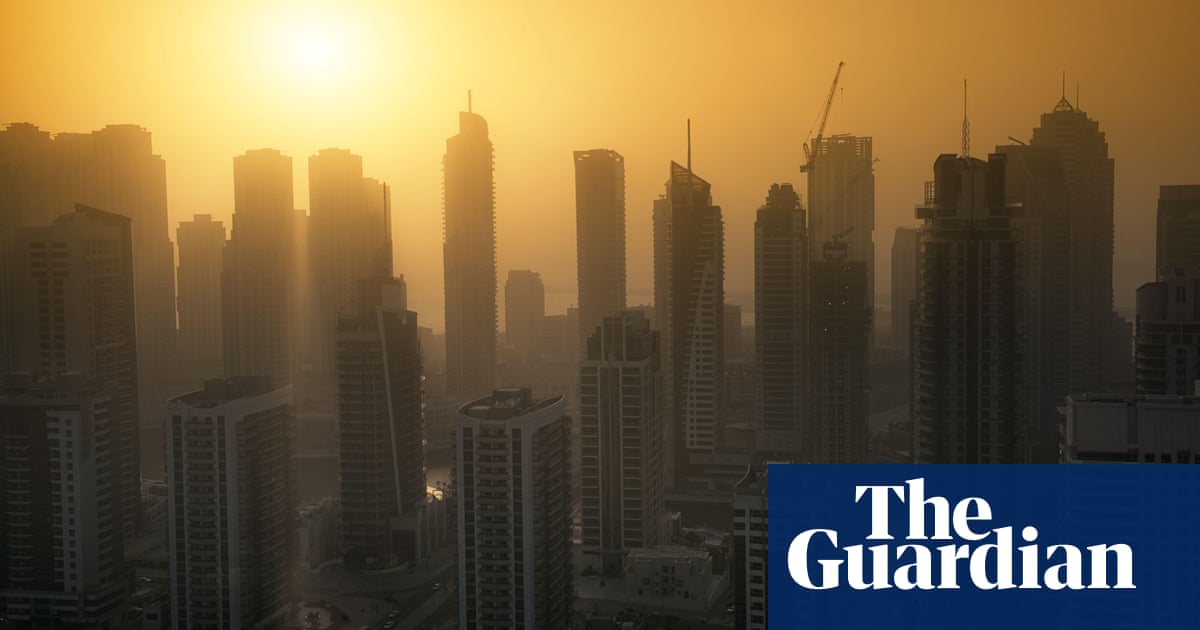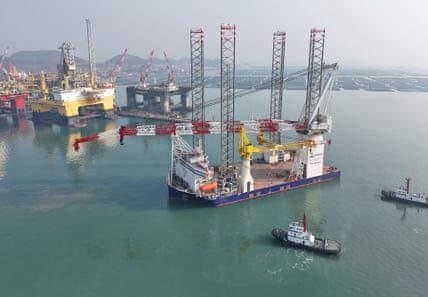According to a human rights organization, the United Arab Emirates has a hidden issue with air pollution.

A recent report by Human Rights Watch reveals that the production of large amounts of fossil fuels in the United Arab Emirates is causing concerning levels of air pollution. This not only poses health hazards for citizens and migrant workers, but also contributes to global warming.
In September 2023, HRW examined data from 30 government ground monitoring stations and discovered that the average levels of PM2.5 were nearly three times higher than the daily recommended levels set by the World Health Organization’s air quality guidelines. PM2.5 refers to tiny toxic particles that can easily enter the bloodstream and cause harm to the lungs.
Each year, approximately 1,872 individuals in the UAE pass away due to exposure to outdoor air pollution. This is especially concerning as migrants make up 88% of the population and the majority of outdoor workers, putting them at a higher risk. The pollution levels have been consistently high since the arrival of thousands of delegates for Cop28 in Dubai, with daily air quality readings reaching up to five times the recommended levels by the WHO.
The United Arab Emirates, along with countries like the United States, Norway, and the United Kingdom, is increasing its production of oil and gas, despite the general agreement among scientists that fossil fuels should be eliminated in order to prevent the most severe effects of climate change. It was reported last month by The Guardian that government-owned oil and gas fields continue to burn off excess gas on a regular basis, despite making a commitment 20 years ago to end this practice.
According to Richard Pearshouse, the environment director for HRW, the use of fossil fuels in the UAE contributes to air pollution. However, due to the suppression of civil society by the government, individuals are unable to voice their concerns or criticize the government’s lack of action in addressing this issue.
According to the UAE government, the nation’s air quality is subpar, which is largely attributed to dust from sandstorms.
HRW reviewed and analysed government air pollution data from 2018 to 2023, satellite-derived data and government reports, as well as interviewing migrants who work outdoors, exiled Emiratis, academics and environmental groups. The average 2022 concentration of PM10 (particles with a diameter of between 2.5 and 10 microns) taken from 50 sites was more than eight times the yearly WHO recommendation.
Migrant laborers stated experiencing respiratory discomfort, shortness of breath, and skin irritation due to the poor quality of air. However, they lacked knowledge about the potential hazards and had no one to turn to for assistance.
In the last ten years, the UAE government has focused on suppressing human rights activists, particularly those advocating for the environment. They have utilized legal measures and the judicial system to silence dissenting voices. According to a report by HRW, individuals in the UAE who wish to raise awareness or voice concerns about the negative effects of fossil fuel expansion and its connection to air pollution may face illegal surveillance, arrest, imprisonment, and mistreatment.
There has been a lack of Emirati representation in regards to climate and environmental activism at Cop28.
According to Pearshouse, the UAE has a hidden issue of air pollution. If the government does not permit civil society to openly discuss and investigate the link between air pollution and the use of fossil fuels, individuals will continue to suffer from preventable health problems.
Source: theguardian.com
